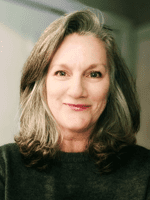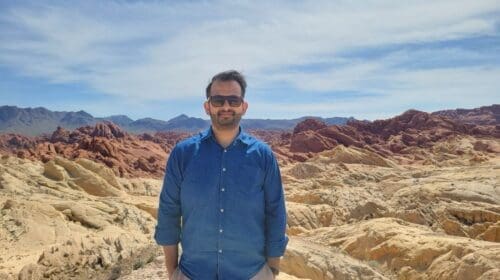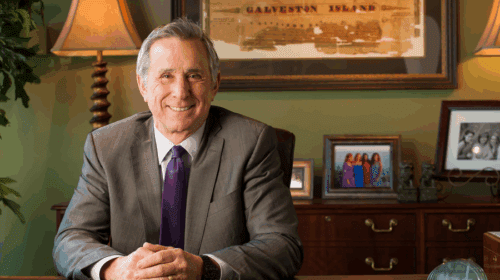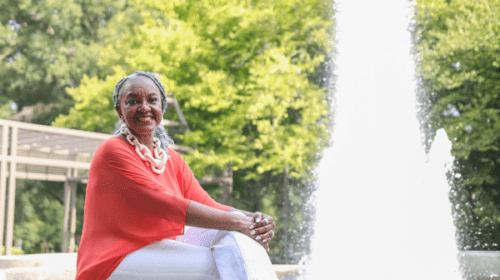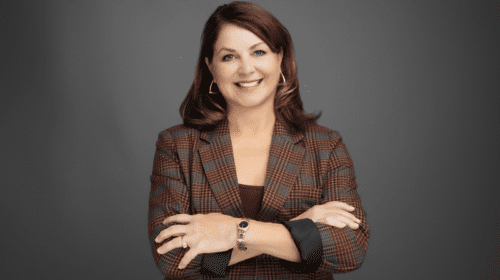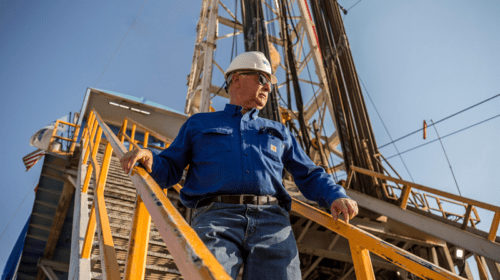There’s nothing like a good movie recommendation from a friend to change the course of your life’s work.
“We go way back,” Mehnert says of her friendship with Jennifer Hohman, then-chief information officer at Seadrill. On a business trip between London and Houston in August of 2019, Hohman told Mehnert she had seen an “amazing” movie, a documentary called Living in the Future’s Past, and urged her to watch it.
“Oh, my God!” Mehnert says now. It would be one of those times where, even several years later, she recalls that moment of epiphany. “I remember the moment when I knew I wanted to be in this business – I was on a rig – and this was the moment when I said, “Wow! Someone else understands that we – the energy industry – are not the bad guys.”
“We crave prosperity, we crave modern life, and that has consequences. Living in the Future’s Past walks you through the human side of energy. It’s okay that we need energy. It’s okay that we want to be profitable. But we are, as the movie says, fossil fuel slaves; we are addicted to oil and gas.”
During her time at Shell, Mehnert recalls then-CEO, John Hofmeister (who later went on to write a book called Why We Hate the Oil Companies), saying it was imperative to figure out how consumption could be reduced.
As she watched the movie, the narrator, Academy Award winning actor and environmental activist Jeff Bridges, asks, “What are you willing to do? What kind of future would you like to see?”
Contemplating those questions, she knew she had no control over a natural disaster like Hurricane Harvey in August of 2017, which resulted in $125 billion in damages, 107 fatalities, destroyed Mehnert’s home and almost cost her her business. Mulling over the big problems in life, she realized Bridges was talking to viewers on a personal level. “What can you do?”
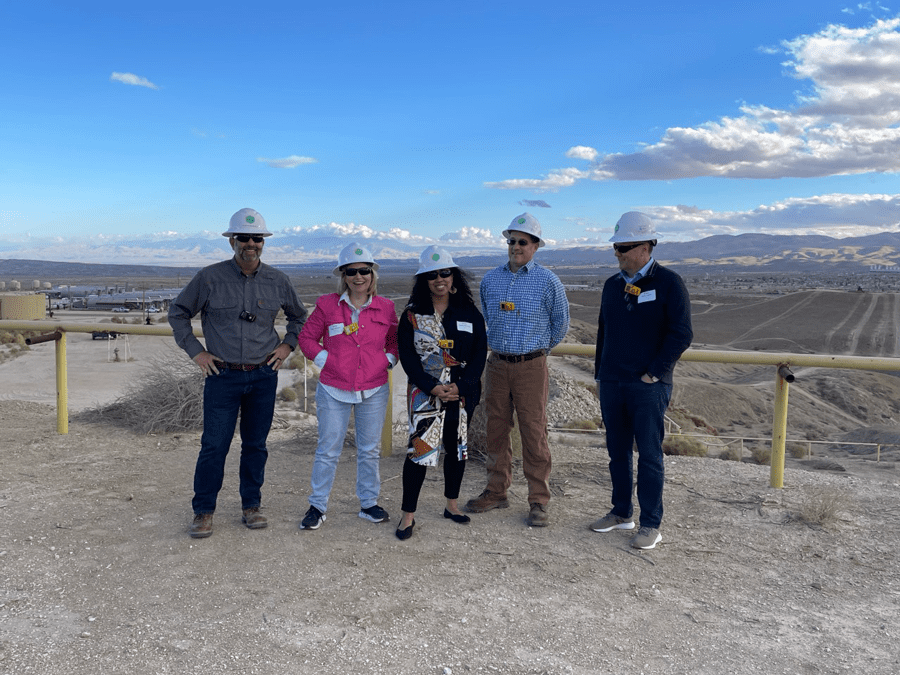
Number Crunching
In response, she says, “I immediately started researching carbon calculators.” Upon calculating her carbon footprint, she says, “I was aghast.”
According to the calculations from one year’s worth of utility bills, the carbon dioxide output from Mehnert’s home equaled two international trips abroad. “I started to think about every international trip I’ve ever taken, and it just crushed me.”
Mehnert wondered if there was some way she could offset her carbon footprint. She started researching waste and even looked at the fashion industry, some segments of which have been vocal in their criticism of the oil and gas industry.
“At the end of the day, we all like our stuff,” she concludes. “And that’s what Jeff Bridges’ movie points out: ‘How did we get here?’ We didn’t get here because we were intentionally trying to harm people; we got here because we’re addicted to prosperity.”
Thinking about that against the backdrop of COVID-19 when the manufacturing and production of many goods ground to a halt, people were sequestered inside their homes, and stopped buying and consuming for 90 days, Mehnert says, “The air was clear. That’s great, but it’s not a strategy for prosperity, because what happened? The markets crashed. You had financial mayhem [a theme discussed in Bridges’ 2021 documentary Hot Money]. You had banks printing money because they had to prop up small businesses and others. It was terrible, but the environment got to breathe,” and that is the dichotomy shown in Bridges’ film, Living in the Future’s Past. Essentially, it boils down to the question, as Mehnert frames it, “If we want to continue to exist, what is that future like?”
Shaken by actually seeing a number assigned to her carbon footprint, which was two times the average, Mehnert, who acknowledges that she has a life of privilege or “abundance,” as she refers to it, came to the conclusion that carbon taxation might be part of the solution.
“If the rich are using more, they ought to be paying for more. It might make them think about using less. Nobody likes taxes; nobody wants a carbon tax, but I want my kid to have clean air,” says Mehnert, the mother of a 12-year old daughter.
“The movie opened my eyes to my own individual use,” and now she helps create awareness by asking other people if they know their carbon footprint. She jokingly makes the analogy, “It’s like standing on a scale; nobody wants to see that number! But when you don’t know your number, you cannot measure success or progress.”
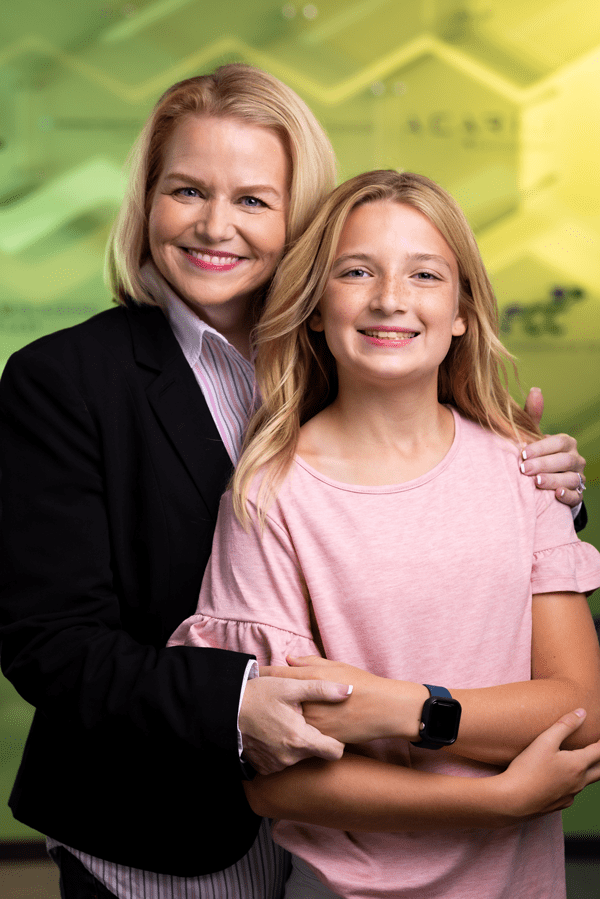
Common Ground
After watching Living in the Future’s Past, Mehnert says she did what she always does when she’s excited about someone: She decided to contact the filmmaker, Susan Kucera, and tell her what an impression the documentary had made on her. Using the website contact form, she wrote, “This is amazing. You nailed it.” She expressed her appreciation that, unlike many in Hollywood, the filmmaker “did not bash the people that are bringing light to mankind.” She jokingly says she expected to have tomatoes thrown at her or, more realistically, not to get a response at all.
Instead, they responded immediately, told her they were interested in what she was doing at Pink Petro, and wanted to arrange a phone call, followed by the words, “Jeff wants to meet you.” Jeff? Jeff Bridges?
In December of that year, in what was supposed to be a 15 minute phone call that turned into 90 minutes, Mehnert connected with Bridges and his team over a Zoom call. “I’ll never forget it,” she says. “I’m having this conversation, and I feel like we’re in a movie.” Kucera’s father was renowned glaciologist and volcanologist, Dr. Richard Kucera, and Mehnert discovered that Kucera’s mother had, at one time, worked for Shell, Mehnert’s former employer, as a cartographer. As they talked, Mehnert says, “There were just these stories that made you think, “Hey, wait a minute. We’re more alike than we are different.”
One of the things Mehnert and Bridges have in common is the loss of their home (in Bridges’ case, homes – plural) to catastrophic natural disasters. Living in California, Bridges and his wife have lost homes over the years to earthquakes, fires and mudslides; Mehnert and her family lost their home in Houston in 2017 to Hurricane Harvey.
Because of this, Mehnert says, “Jeff and I shared a moment. I got upset. I think he got it.” In talking about the 2018 mudslides in Malibu, when he and his wife had to be rescued by helicopter, Mehnert told him, “Jeff, you’re speaking my language. I don’t know that I could call a helicopter to airlift me out, but we have more resources than many people. We are lucky.”
Despite losing their home and not being fully insured, Mehnert says, “We were lucky because, like Jeff, we had friends and we had resources.” This led her to the realization that, “Climate change is not selective,” and if it could have such devastating effects on people with abundance, then how much more does it impact those without.
The conversation would lead to Kucera later telling Mehnert that she wanted to “get the story from Houston,” where she traveled to meet with people in the industry, many of whom Mehnert introduced her to. Ultimately, Mehnert would wind up having a part in Hot Money, in which she utters the classic line, “Am I in the middle of some movie?”
Impressed with Bridges’ insights and passion for the world around us, Mehnert invited him and four-star general Wesley Clark, who also appears in both of Kucera’s documentaries, to speak at Pink Petro’s annual conference in Houston in March of 2020, just as COVID-19 was turning the world upside down. Unable to travel, Mehnert took a somewhat unusual step – at the time – of hosting the two men over Zoom and having them share the messages behind the documentaries with an audience of professionals from all sectors of the industry. It would also be the last conference under the Pink Petro banner, as Mehnert made the decision to rebrand her company as ALLY Energy.
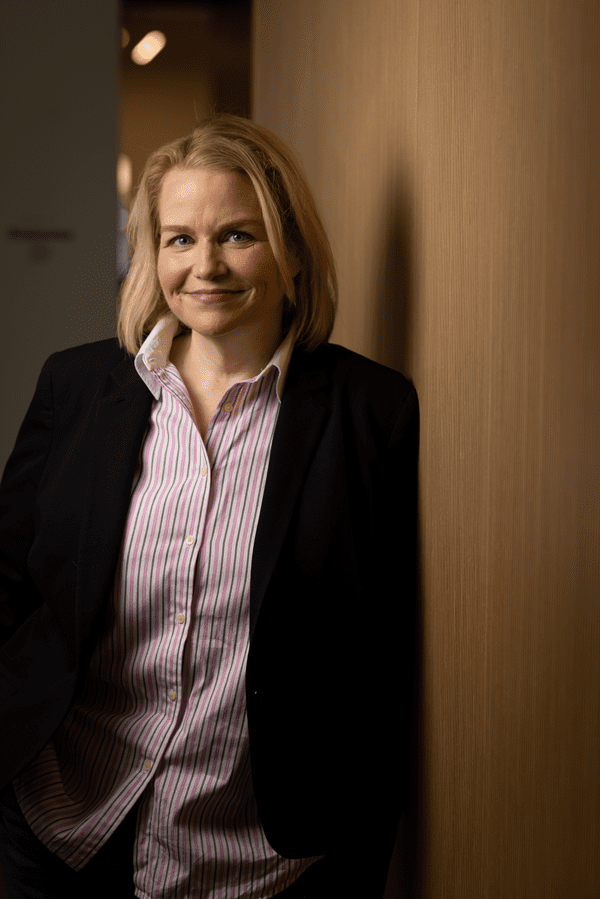
Launch Day
Hot Money launched the week of the presidential inauguration in 2021, and Mehnert says she wanted to get involved because, despite what she refers to in the film as “five [or] six biblical-like events,” part of the challenge is, “We still have people that deny that climate change is real.”
She also believes there are still a lot of people who don’t understand that our single greatest threat is also our single greatest opportunity. She points out that we have put men and women on the moon and, in the last few years, have developed a vaccine in record time.
“We can solve climate change,” she says resolutely, “but we have to be morally invested, and we absolutely have to be financially invested, and nobody wants to see the cost of everything go through the roof. Nobody wants to see taxes – nobody. I’m the last person in the world that wants a tax, but we’ve gone too long. Our infrastructure is at a breaking point in this country. The grid needs shoring up. We need new fuels to come to market. The only way to do that is to pour investment into what we’re doing, in order to secure [our] position as an energy leader going forward.”
Mehnert says she wanted to be involved because the intent of Hot Money, which features a Who’s Who of scientific and financial experts, is to “help people understand the cost of doing something versus the cost of not doing anything at all.”
Through her involvement with the film, she says, “I met some really fabulous scientists and academics who really understand this notion of energy allyship, that it all matters, and that we have to work together in order to solve this challenge.”
The Ambassador
Since then, Congress passed the Inflation Reduction Act of 2022 (IRA). “Do I agree with every single line of that legislation?” Mehnert asks rhetorically, and then replies with an emphatic, “No! But, at the end of the day, it is getting us moving forward, and that’s what’s important.”
Mehnert, who serves as an ambassador to the Department of Energy under the current administration and also served under the preceding administration, says, “Every single administration has tried to figure out sound energy and environmental policy, but no one crossed both sides [of the aisle]. This is the first administration that’s really been able to push a lot of this through, and it’s extensive.”
She is adamant that the United States must lead the world into a brave, new future. “The entire industry – not just oil and gas because the renewables side of the house has got problems, too, with communication – has got to continue to look at this from a bigger picture perspective. People do not understand energy – period – whether it’s oil and gas, or wind or solar.”
In order to counter an “out of sight, out of mind” mentality, Mehnert says, “We need to be doing more to educate the public and meet them where they are, so that we can help them understand the topics around energy and the opportunities it affords.”
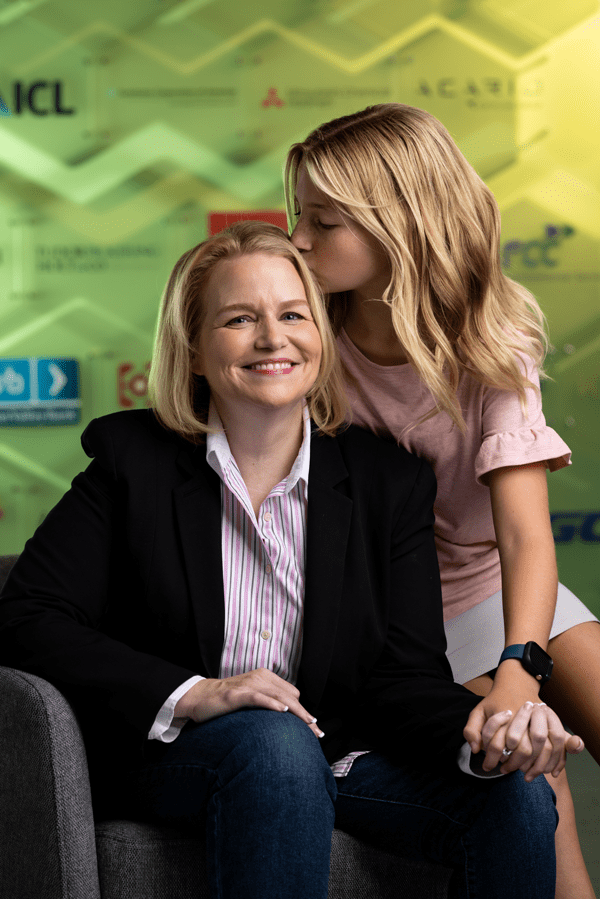
The Storyteller
“I feel like my journalism degree has come full circle,” says Mehnert, who has a Bachelor of Arts – Communications, from Louisiana State University. “I realized that in order to tell the story of something you really need to have experienced it.” Having worked for two majors – bp and Shell – over the course of her career, and now as an entrepreneur, Mehnert asks, “How do we take this message to young people, to investors, to the public?”
Having witnessed the power of film that she herself experienced as an industry insider watching Living in the Future’s Past and participating in Hot Money, she believes that film is an underutilized ally in telling the stories around the most important issues facing the world today. Toward that end, she has recently participated in the pilot episode of a docuseries, the premise of which she says is “to reflect the human side of the people who are a part of the energy industry and that want to drive the new future.”
Mehnert believes change is on the horizon. “We are on the cusp of new energy, a breakthrough energy, whether it’s hydrogen, carbon capture, wind, solar – nuclear, if we could ever get around the fear of it,” and is optimistic about the potential the medium of film holds for bringing this message to the wider world.
While she is excited about the possibility of the docuseries getting picked up by one of the major streaming channels, she is also realistic. “If it doesn’t take off, at least I’ve got my day job,” she says, only half joking. “Because I’ve still got a lot of work to do.”
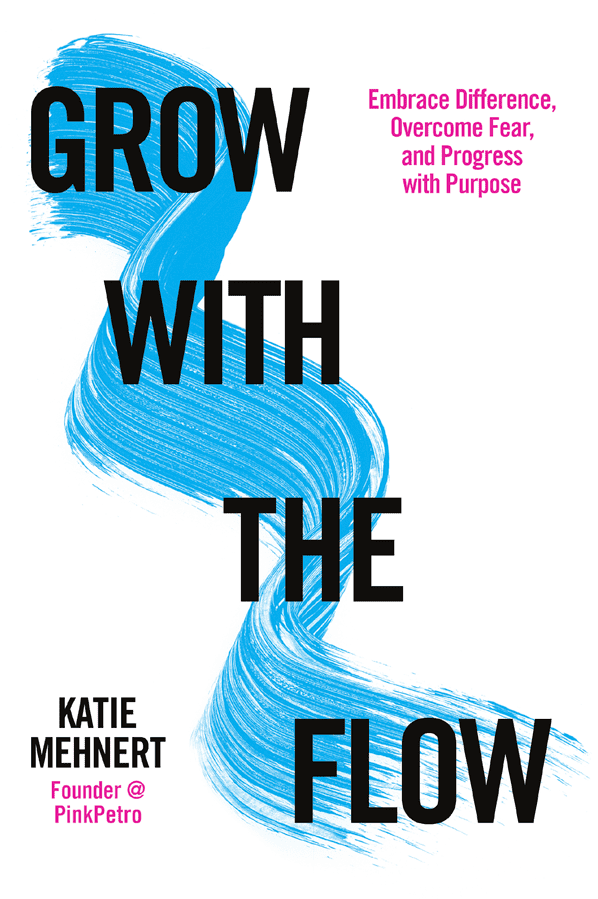 Grow with the Flow: Embrace Difference, Overcome Fear, and Progress with Purpose
Grow with the Flow: Embrace Difference, Overcome Fear, and Progress with Purpose
By Katie Mehnert
Due to the safety issue, our devices had to remain off [during the flight]. I was trapped next to Bubba sans technology, but the two things kind of went together, seeing as Bubba was mentally in the Stone Age. That’s when I had my cocktail napkin moment. Bubba and I had stopped talking, so I started spilling my mind onto those napkins. I was exhausted, but not past the point of caring. I sketched out notes: How could I change the perception of our industry? How could I accelerate the progress of women? How could I accelerate the progress and understanding of what we do and get more engaged with it? How could I get people in my own industry rallied behind the fact that we desperately needed to transition to new fuels? How can equality + environment = new economy?
My pen had trouble keeping up with my mind. My mind had trouble keeping up with my pen. Thanks to Bubba, my father, bare luck, and Mother Earth, I was a woman on fire.
~
It’s like this: You have to look for the gaps. “Ordinary” people (there’s really no such thing) tend to see what’s there. Extraordinary people see what’s not there and find a way to provide it.
In a way, this goes back to how I was raised. My dad didn’t want me to perceive any net beneath me. He hoped to nurture my self-reliance. Part of being self-reliant is being resourceful or being able to claim the future as something you can control and influence, and act accordingly. A big part of this comes down to filling gaps. The future itself is a gap – it’s not here yet but, day by day, we occupy it. We turn the unknown into the known. If you want an ordinary life, you can do what’s safe and predictable, and stick to the well-worn pathways. But, man, it gets wild when you branch off onto the ones that were never there before.
It happened fast. After socializing the idea, my first client, Cindy Patman, an HR executive and colleague at Halliburton, wrote me a gorgeous five-figure check, fully aware that I hadn’t created anything yet. All I had were my cocktail napkins and a great big gap. Her check was a way of saying, “Close it.”
One day, likewise, the local media called me. They asked, “What’s Pink Petro? We heard you’re launching it.” Those were the reporter’s exact words. And it was the moment I realized it was real.
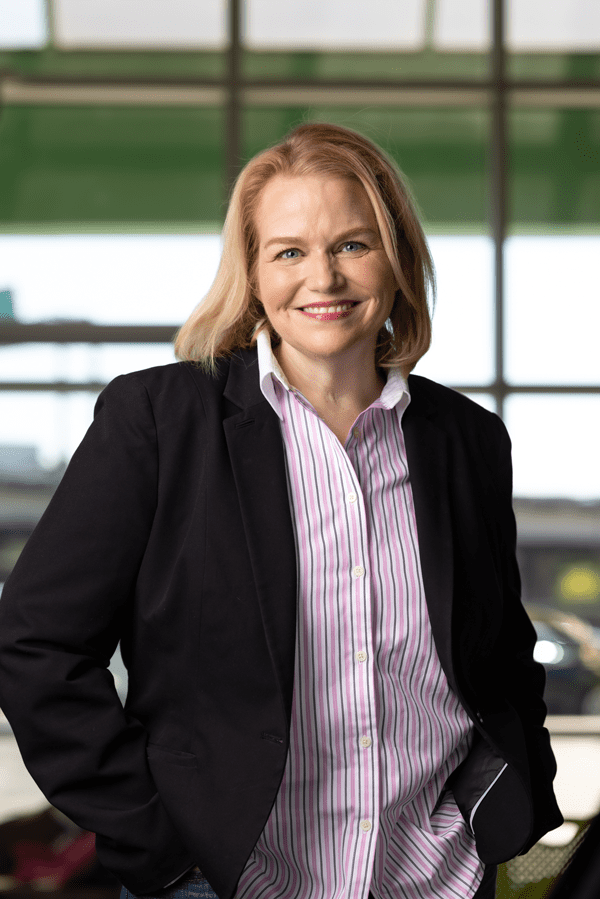
“Look, I said, “can you give me two days?” I was on the line at that point. All the people around me not only got what I was doing, but dug it to the extreme. The message I kept getting was, “Oh my gosh, Katie, this is so you. This is perfect. Go, go, go!” So, I started a website and a social media channel. I was finally in beta testing mode (whatever that means).
And, then, as ready as I could be at that time, I called the reporter back for that interview. And I faked my way through the entire conversation. But one fact I offered in it turned out to be real. I told the reporter, riffing off the top of my head, that Pink Petro was set to launch in the first quarter of the following year, March 8, 2015, on International Women’s Day.
I’d never told anyone this before. I wasn’t even aware of it myself. Yet it came out of my mouth, so that was the goal I stuck to. It had become real – the thing had taken on life. Pink Petro and Experience Energy were born, moving at their own paces, following their own minds, and using me kind of like a puppet. And closing every gap in sight.
Excerpted with permission from Grow with the Flow: Embrace Difference, Overcome Fear, and Progress with Purpose by Katie Mehnert (Wise Ink Creative Publishing; April 2020)
Hot Money Trailer
Living in the Future’s Past
Rebecca Ponton has been a journalist for 30+ years and is also a petroleum landman. She is the author of Breaking the GAS Ceiling: Women in the Offshore Oil and Gas Industry (Modern History Press; May 2019). She is also the publisher of Books & Recovery.
Oil and gas operations are commonly found in remote locations far from company headquarters. Now, it's possible to monitor pump operations, collate and analyze seismic data, and track employees around the world from almost anywhere. Whether employees are in the office or in the field, the internet and related applications enable a greater multidirectional flow of information – and control – than ever before.


